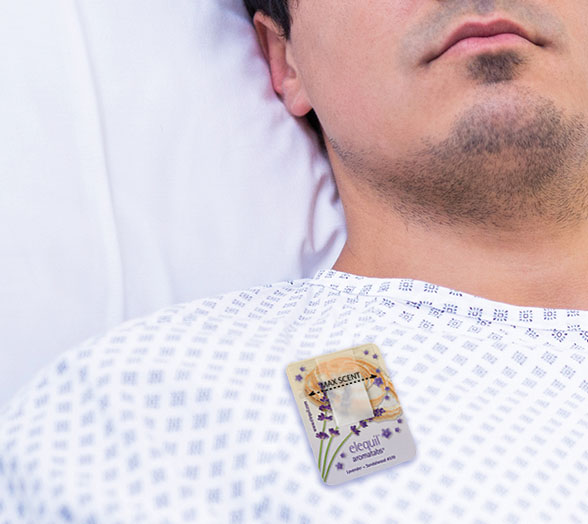
Hospitals are looking for ways to reduce opioid use with their patients to decrease the risk of addiction. Pain management clinics, pain conferences, and pain committees within the hospital are becoming more and more common to address this crisis.
According to the Joint Commission’s 2018 Pain Management Standards, hospitals are required to have a clinical leadership team that focuses on pain assessment and management practices. These teams have established budgets and many are looking for solutions and tools to establish processes to support their pain reduction initiatives.
The government is also fully involved. The Substance Abuse and Mental Health Services Administration announced on June 14, 2018 that they have allotted $930,000,000 in funding for State Opioid Response Grants.
Furthermore, physicians and others are lobbying to share their internal programs on a national level. One example is Dr. Mark Rosenberg, of St. Joseph’s Healthcare System in New Jersey.
Dr. Rosenberg launched Alternatives to Opiates Program (ALTO) that demonstrates a new way to handle pain without opioids in the emergency department. This program has reduced opioids by 82% since January 2016. He has been working tirelessly with the House of Representatives to implement the program and on June 18, 2018, a bill was passed to implement a national pilot program similar to ALTO.
Patrick Morrisey, West Virginia’s Attorney General, spearheaded the initiative that as of June just became that state's new anti-retaliation law which provides physicians protection and alleviates any negative consequences if they refuse to prescribe opioids.
Unfortunately, physicians are under pressure to prescribe opioids because of the significance of patient surveys.

CMS CAHPS surveys are used to monitor high quality services and is a Pay for Performance initiative. Some patients come into the hospital looking for opioids, and when they are given an alternative, their surveys have negative comments that can impact reimbursement. With the new law, West Virginia Physicians can now practice without fear of poor scores that can jeopardize their compensation or employment.
The initiatives mentioned above are just a few actions that are taking place to positively reduce the opioid epidemic. Hospital clinical leadership teams are meeting regulatory mandates to implement new policies and look for alternatives, such as integrative medicine.
One tool within that spectrum used to help patients cope with pain is aromatherapy through inhalation. It is both low risk and cost effective.
The use of essential oils for healing dates as far back as 3000-2500 BC.
Lavender is a popular aromatherapy choice to use with patients experiencing pain within the clinical setting. Lavender helps promote relaxation, comfort, and sleep. When a patient is more relaxed, pain can decrease. In fact, the U.S. Department of Veteran Affairs promotes aromatherapy to help physically relax.
In a research article titled The Effectiveness of Aromatherapy in Reducing Pain: A Systematic Review and Meta-Analysis that reviewed and analyzed 42 qualitative and 12 quantitative pain studies in many areas including: chronic neck and back pain, knee pain, labor and delivery, post-cesarean section pain, post-operative pain, and the list goes on. Their conclusion found a significant positive effect of aromatherapy reducing pain. They also noted as a safe way to manage pain since there was no report of adverse effects as well as it is cost effective.
Beekley Medical’s Elequil aromatabs®, aromatherapy designed for the clinical setting, is an option when considering aromatherapy for your patients.
I often speak with hospital associates spearheading their health system’s aromatherapy initiative and they share why Elequil® is often their preferred choice.
Elequil uses 100% pure essential oils which are free of pesticides, do not contain any synthetics, do not require a carrier oil and can last 8 hours or more.
Its unique controlled delivery system makes Elequil ideal for the clinical setting as it ensures a consistent amount of oils for each use, adheres to gown or clothing for hands-free individual use, does not contain any metal or foil, and allows for minimum or maximum scent exposure.
Elequil is used in over 1200 hospitals nation-wide in areas such as MRI, Pre & Post Op, ICU, Emergency, Radiology, Cancer Centers, Labor & Delivery, Quiet At Night Programs, Hospice, Skilled Nursing Facilities, Assisted Living, and system-wide Integrative Medicine Programs just to name a few, with positive feedback from both patients and staff.
Here is just one of the many customer reviews we receive about this product:
“We just started using (Elequil) aroma tabs have for a few months and the patients and staff love them. We are an Orthopedic and Spine Specialty unit at a hospital, so we see a lot of geriatrics and middle aged patients with a lot of pain/nausea after or before surgery and the aroma tabs help a lot. The patients know we are doing everything we can to help them on their road to recovery, Elequil is a major part of that.”— Leala, Fairview Ridges Ortho & Spine
If you are interested in learning more about the benefits of Elequil, contact your Account Manager at 1-800-233-5539 and ask about our new educational video below or visit elequil.com.
Related articles:

Melissa Vibberts
Director of Brand Management


